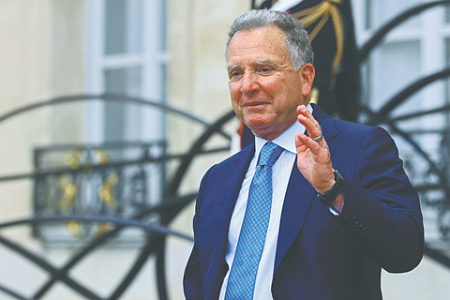
A key figure in the Trump administration, Special Representative for the Middle East Steve Witkoff, is expected to leave his post before the end of the year, according to reports in Israeli media. Witkoff’s departure would have significant repercussions for U.S. foreign policy, as he also oversees the sensitive Russia-Ukraine portfolio, where he has cultivated a reputation as President Donald Trump’s “good cop” in communications with the Kremlin. While the White House has not officially confirmed the resignation, it comes amid announcements of a broader staff shake-up within the executive branch, particularly at the Pentagon.
Citing an “informed source,” The Times of Israel reports that Witkoff’s office is already anticipating his exit, which is speculated to occur by year-end. The timing is reportedly tied to President Trump’s ambition to broker a peace agreement in the Gaza Strip, which would allow Witkoff to depart on a high note. However, an official confirmation of this timeline remains absent.
Should Witkoff resign, it would not come as a surprise. The billionaire businessman-turned-diplomat has been under increasing scrutiny for his dual roles. His diplomatic efforts with Russian officials have drawn criticism, with many in the U.S. media interpreting his statements as pro-Kremlin. A debate persists over whether his proposals for concessions to end the Russia-Ukraine conflict—ideas staunchly opposed by Kyiv—reflect a sincere policy or are merely a negotiation tactic.
Witkoff’s position has become more tenuous as President Trump has dramatically hardened his tone toward Moscow. Shifting from the role of a mere mediator in the Russia-Ukraine conflict, Trump is now vowing comprehensive support for Ukraine and expressing clear frustration with his previous attempts to negotiate with Russia. In this new political climate, Witkoff’s conciliatory approach appears increasingly obsolete and misaligned with the White House’s revised strategy.
Adding to the pressure are controversies surrounding his activities in the Middle East. The New York Times recently reported that his son, businessman Alex Witkoff, proposed a multi-billion dollar real estate investment fund to Qatar. While Qatari authorities rejected the project, the report raised serious conflict of interest concerns, suggesting Witkoff’s family was pursuing business deals with a government he was officially negotiating with. White House Press Secretary Anna Kelly dismissed the story as “another slander,” but the growing number of such accusations could impact the president’s ratings, making the envoy’s departure a politically viable option.
Witkoff’s potential exit is seen as part of President Trump’s broader effort to consolidate his team and ensure loyalty. Trump himself has signaled major personnel changes, with the most explicit announcements concerning the Department of Defense. During an emergency meeting with senior military officials, Trump promised that generals who disagree with his policies would soon be “stripped of their ranks.”
This sentiment was echoed by the new head of the Pentagon, Pete Hegseth, who declared that the military’s sole mission would be combat readiness, ending the focus on “political correctness” and gender equality programs from the previous administration. Hegseth advised any military personnel opposed to this new direction to “do the honorable thing and resign.” This renewed purge of the administration, following an earlier wave of dismissals, suggests that no position is secure, and Witkoff could well be among the next to be replaced.
